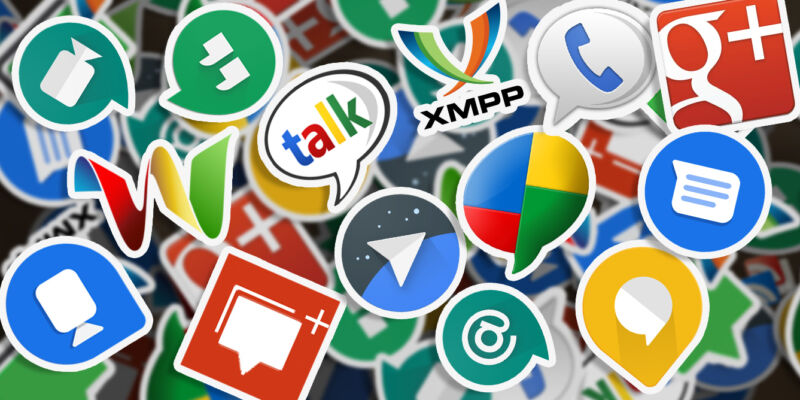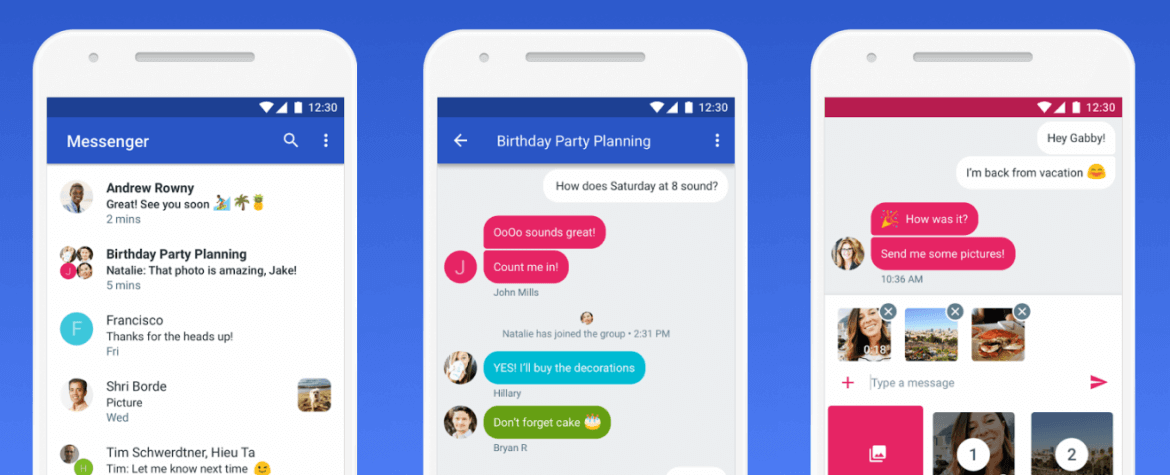

Now, Seznam is encouraging a legal debate in Europe about whether large tech companies have unfairly squeezed out room for competition. Īlso, Adam Satariano reports on a web search company in the Czech Republic called Seznam that was beating Google, until smartphones with Google as the default search option spread everywhere. Google’s parent company made a lot of money. But Apple will most likely never go along with it, which means that RCS will never be a universal texting technology.
MESSAGING APP LIKE IMESSAGE FOR ANDROID ANDROID
Google has pushed RCS, and it has replaced SMS texting on some Android phones. Like SMS it is a shared technology that no single company controls. RCS is a mess, but it has more modern features than SMS and is pretty secure. Patel cited the more updated cousin to SMS known as RCS, or rich communications services. I asked Nitesh Patel, the director of wireless media research at Strategy Analytics, if there is a middle ground between America’s reliance on SMS and a corporate app like WhatsApp becoming the digital front door. And it makes me feel uneasy to suggest that everyone should use WhatsApp and make one Big Tech company the gateway to all of our digital communications. You can’t use WhatsApp to text your friend who uses iMessage, but SMS is universal. I want to stick up, a little, for the simple beauty of SMS. This encryption technology draws criticism because it also hides messages from law enforcement. WhatsApp and similar apps like Signal use a technology that locks down texts from prying eyes.
MESSAGING APP LIKE IMESSAGE FOR ANDROID TV
In new TV commercials, WhatsApp stresses that SMS is vulnerable to snoops or criminals reading our messages. Maybe basic texts are just fine in many cases, but SMS also has security limitations. SMS handles most of the functions above with difficulty. smartphone owners have iPhones and live in this modern chat world, unless they communicate with Android phone users. WeChat, WhatsApp, Signal and other modern texting apps often let users see which of their friends are online, send high-definition images and animations, share physical locations with the people they’re texting, and connect with apps directly in chats to send money or do other tasks. What’s the big deal if America’s texting relies on phone lines? Well, SMS is an old and rickety technology awkwardly crammed into newer ones.

When Germans text, they tend to use WhatsApp, which is also the go-to chat method in India, Britain, Brazil, Indonesia, Mexico, France and many other countries. In Germany, the figure was eight billion, according to an analysis by the mobile research firm Strategy Analytics. by SMS or the companion image technology known as MMS. Here’s one example: In 2020, something like one trillion personal and commercial messages traveled in the U.S. uses SMS at a volume that most other countries don’t.

Clear as mud? And if you’re texting from an Android phone … it’s complicated, but you’re probably using some flavor of SMS. Those messages flow over the internet like what you watch on Netflix - unless you text someone with an Android phone, and then your texts are SMS. If you’re an American with an iPhone, you probably use iMessage. Fine! But let me explain why we should reflect a bit on this communications technology. I know that many Americans use whatever text app is on their phone and don’t think too hard about it. It’s also another way that America’s smartphone habits are unlike the rest of the world’s in ways that can be helpful but can also hold us back. is a reminder that the most resilient technologies aren’t necessarily the best ones. The continued prevalence of SMS in the U.S.


 0 kommentar(er)
0 kommentar(er)
